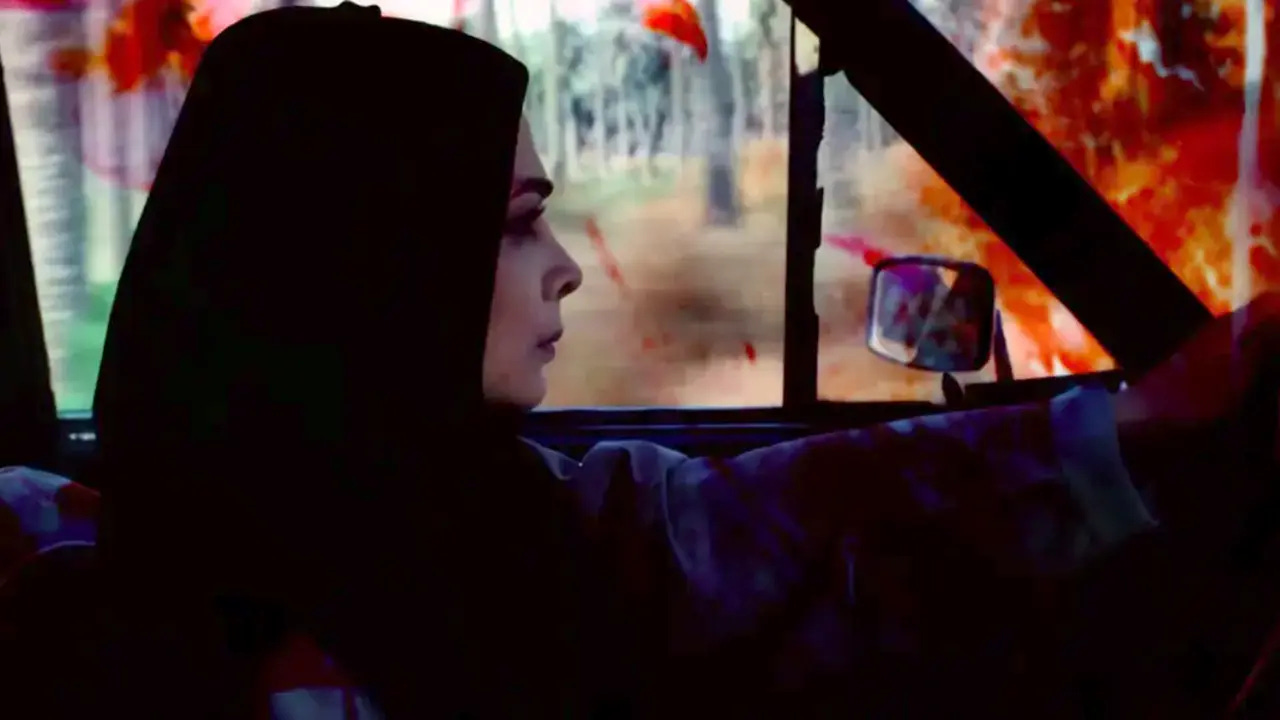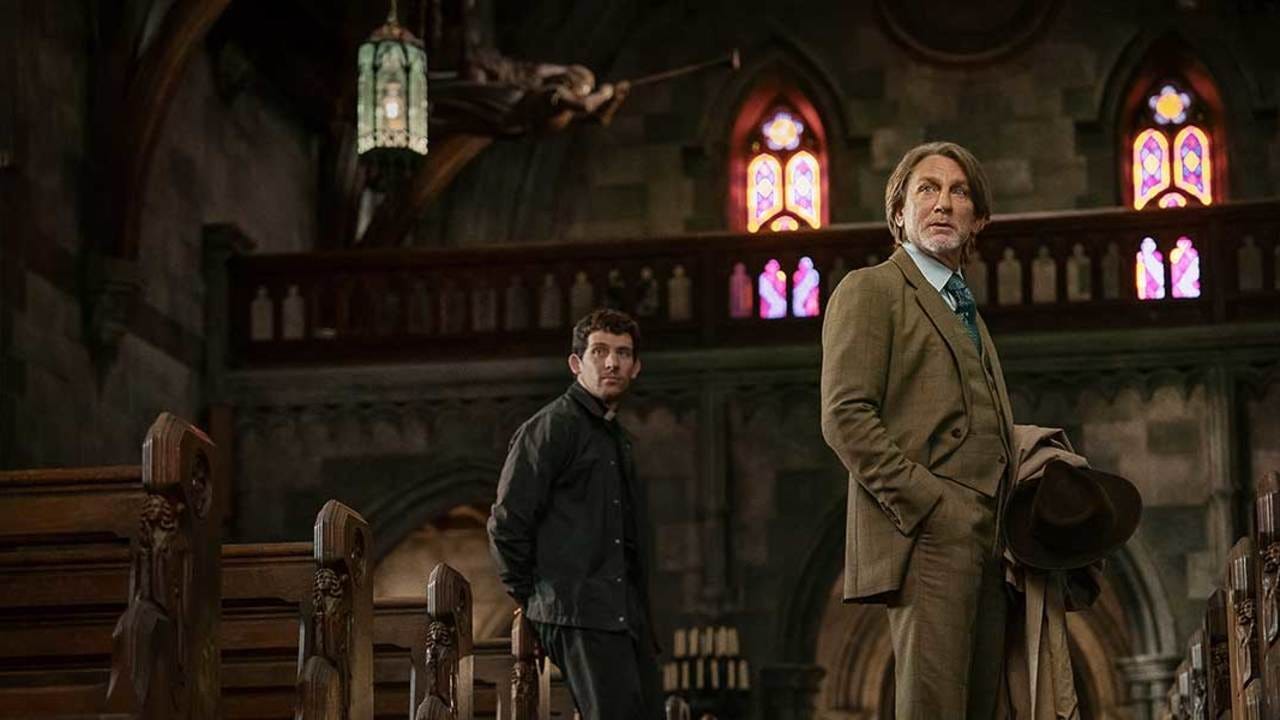TIFF '25 Day Three
A few words about exaltation
It was nice, finally having some proper sleep. Not as long as I’d have liked, but enough to have me ready for an important day at the festival. I only attended three screenings—yes, I understand this might sound like a lot to a normal person, but film festivals are not for normal people—but I also had an interview to do. Interviews are an exciting, stressful proposition, especially at a festival, where you can sense the life draining out of which ever talent seated opposite you. You hope your questions will yield great answers, but also that the person you’re talking to will genuinely appreciate the effort and the conversation. There’s nothing worse than the feeling you’re wasting someone’s time.
Like I said, I was well (enough) rested and feeling, for the first time in the fest, properly ready to tackle the day. That gave me a palpable pep in my step. Breezing on down University Ave. on my bike, headed to the TIFF Lightbox, I was feeling happy. You know that energy you get from being assuredly prepared? It sort of seeps into your bones, and you feel invincible. Not literally, but as a matter of personal mentality. Attack the day! Anyway, that was how I was feeling, heading over to the longest line I’d experienced at this year’s festival so far.
I was down at the Lightbox to see one of my more anticipated films of the festival, Mona Fastvold’s new feature The Testament of Ann Lee, her follow-up to 2020’s The World to Come, and her most recent collaboration with husband Brady Corbet, with whom she co-wrote The Brutalist. The pair also co-wrote this new film, and the two clearly share an artistic and intellectual sensibility, though Fastvold’s approach as a director is in many ways quite distinct. Though similarly brash and self-consciously grand, her work has a sensuality about it that you don’t get from Corbet’s cleaner, more austere style. No surprise that the kaleidoscopic sex scene near the end of The Brutalist was actually directed second-unit by Fastvold.
The Testament of Ann Lee, unlike The Brutalist is about an actual, real historical figure. Ann Lee was one of the founding members of the Shakers in America, the Christian offshoot of Quakerism that leaned into physical religious fervour. The Shaking Quakers, they were called, for all their shaking and dancing. Lee brought strict celibacy to the equation, and despite how dreary mass abstinence might sound, the group’s devotion to God, their ecstatic gatherings, their communal living and dedication to labour and refinement, and the rejection of sex attracted some small but impressive numbers of followers throughout the 19th century. This film begins in the 18th century, with Lee as a child, and follows her story all the way to her death at 48. Amanda Seyfried stars as Lee, delivering a truly outstanding performance, anchoring her conversion and journey to leadership in an emotional reality that makes it all seem so understandable. The appeal is clear, and made even more clear by the film’s musical sequences—yes, the film is at points a musical—with Celia Rowlson-Hall’s stunning choreography and Daniel Blumberg’s music creating a feeling of real exaltation.
I will surely have more to say about the film down the road, once it snags distribution and a release, but suffice it to say, I thought it was great. Though, I will admit, not unlike The Brutalist, Fastvold’s film just happened to hit a few areas of real interest of mine; in this case, primarily the exploration of the new faiths of America that took hold in New York’s Burned-Over District. The Mormons also came out of that stew. Here, Fastvold attempts to give Lee similar biographical treatment to any number of prophets—and Jesus himself—on screen. I suspect, and in fact know, that many will be underwhelmed by the film’s straightforwardness in this regard, but I think that misses what the film is really doing. It is, at its core, an exploration of exaltation, and finding that feeling in a world falling apart, both through a rejection of the ungodly, but also an embrace of the world as a godly creation manifest through the human spirit. I am not a religious person, and I have no interest in celibacy as a practice, but I don’t think Fastvold is, either. Rather, this is a film about establishing a life with like-minded people to do holy work hand-in-hand, that is to say: creating a better world.
After getting out of Ann Lee, a made my way over to the Elevation offices for my interview, which was a wonderful 30 minutes with The Secret Agent star Wagner Moura—yes, he is that handsome and charming in person, and also an excellent interview. You’ll be able to read that later in the year, when the film comes out, but for now I’ll say that it was a real pleasure talking to Moura about Brazil, its politics, its history, and bringing that to life onscreen for generations only now reckoning with the country’s dictatorial past.
I got out of there, and rushed back to the Lightbox to take in the second of three Wavelengths shorts programmes—as it turns out, I cannot make the third, most anticipated one on Sunday due to another scheduled interview. I missed the introduction, so I really wasn’t sure what I was about to encounter, though I will admit I was ultimately disappointed with the selection. The clear highlights were Mark Jenkins’ very funny “I Saw the Face of God in the Jet Wash,” in which he narrates Super 8 footage captured on his travels as a filmmaker, Kaiwen Ren’s very short film “Aftertide,” and Maryam Tafakory’s “Daria’s Night Flowers.” The latter film is an impressive assemblage of dozens of clips from various Iranian films over the last several decades, cut together to accompany the narration of a story about an Iranian woman’s terrible abuse.
I had plenty of time to kill after the Wavelengths programme, so I headed home to tackle edits on a piece drafted prior to TIFF. After getting down with that, I had to go see a guy about waking up a dead man. Down at the Princess of Wales, Rian Johnson was premiering his third Benoit Blanc mystery, Wake Up Dead Man, which places my favourite recent addition to the detective canon into yet another new style and tone. I started my day with a film about religion, and here again was a film about religion, with Blanc solving the mystery of a very Trump-like Catholic priest killed in a locked-room mystery situation. Most people will only get to see the film in December, or late November at the earliest, if a theatre nearby plays it, so I won’t get too far into things. That said, the cast assembled here is excellent. Along with Craig, the film stars Josh O’Connor—the real lead of the movie, both in screen time and character work—Glenn Close, Josh Brolin, Mila Kunis, Jeremy Renner, Kerry Washington, Andrew Scott, Cailee Spaeny, Daryl McCormack, and Thomas Haden Church. Like I said, an excellent cast.
Moreover, Johnson does some incredibly ballsy things with the very meta inclusion of classic detective fiction as reference points for characters in the story. John Dickson Carr’s The Hollow Man being the main one, but with heaps of Agatha Christie’s The Murder of Roger Ackroyd and others. It’s easy enough to make references, but Johnson layers these references in so deeply that he risks falling flat by comparison. Instead, he effectively builds expectations around those old mysteries into something new and clever. And that’s not even getting to what ends up being quite a moving story by the end, dealing with the meaning of faith, even when literal faith in God is absent. Faith in people and the world, more like, and the ability of that faith to transform people and make the world better. A fitting end to a day that started with a story about Ann Lee and the shakers.
Previous:





